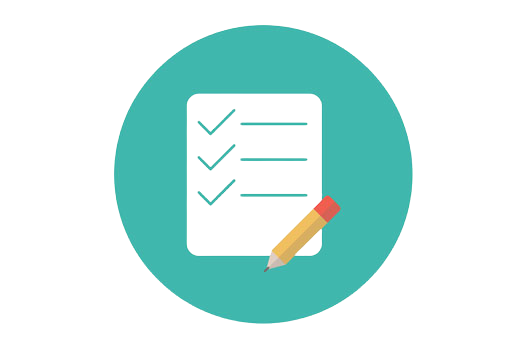Your Shopping Cart

Enroll now to become a Certified Data Science expert with EDTIA Data Science Masters Program and upgrade your skills.
Data Science Masters Program makes you experienced in tools and systems utilized by Data Science Professionals. It contains training in Statistics, Data Science, Python, Apache Spark & Scala, Tensorflow, and Tableau.
Data Science Masters Program makes you skilled in tools and systems operated by Data Science Professionals. It possesses training in Statistics, Data Science, Python, Apache Spark & Scala, Tensorflow, and Tableau.
A data science master's program helps you acquire skills to collect, manage and analyze data, its types, trends, and deliver the results accordingly. This advanced skill set is spread out throughout the M. Sc.
There are no prerequisites for enrollment in the Data Science Masters Program.
experienced professional working in the IT industry, an aspirant preparing to join the world of Data Science
Today, companies across multiple industries operate and rely on data scientists to develop their businesses. Data scientists are generally responsible for collecting and analyzing raw data, using data to gain insights into business processes to help achieve various goals.
Data scientists study which queries need responding to and where to locate the related data. They have business acumen and analytical skills and can mine, clean, and present data. Businesses utilize data scientists to source, manage, and analyze large amounts of unstructured data.
As companies hope to extract essential insights from big data, the demand for data scientists is on a consistent rise. Reports suggest that India is the second-highest country after the US created the requirement to recruit around 50,000 data scientists in 2020 and 2021.
Data scientists examine which questions need answering and where to discover the corresponding data. They have business acumen and analytical skills and can mine, clean, and present data. Businesses use data scientists to source, manage, and analyze large amounts of unstructured data.
Understand data and its types accordingly sample data and derive meaningful information from the data in different statistical parameters.
learn about probability, interpret & solve real-life problems using chance. You will get to know the power of possibility with Bayesian Inference.
Illustrate inferences from present data and construct predictive models utilizing various inferential parameters (as a constraint)
understand the various methods of testing the alternative hypothesis.
introduction to Clustering as part of this Module which forms the basis for machine learning.
Discover the roots of Regression Modelling operating statistics.
learn data and its types and will accordingly sample data and derive meaningful information from the data in terms of different statistical parameters
learn about probability, interpret & solve real-life problems using chance. You will get to know the power of possibility with Bayesian Inference.
learn to draw inferences from present data and construct predictive models using different inferential parameters (as the constraint).
understand the various methods of testing the alternative hypothesis.
get an introduction to Clustering, which forms the basis for machine learning.
know about the roots of Regression Modelling operating statistics.
introduction to Data Science and see how Data Science helps to analyze large and unstructured data with various tools.
know about various statistical techniques and terminologies utilized in data analysis.
Discuss the various sources available to extract data, organize the data in a structured form, examine the data, and represent the data in a graphical format.
introduction to Machine Learning, discuss the different categories of Machine Learning and execute Supervised Learning Algorithms.
learn the Supervised Learning Techniques and implement various techniques, such as Decision Trees, Random Forest Classifier, etc.
Know about Unsupervised Learning and the different types of Clustering that can be utilized to analyze the data.
know about association rules and various types of Recommender Engines.
Examine Unsupervised Machine Learning Techniques and the execution of various algorithms, for example, TF-IDF and Cosine Similarity.
learn about Time Series data, different components of Time Series data, Time Series modeling - Exponential Smoothing models, and ARIMA model for Time Series Forecasting.
Intro to Reinforcement Learning and Deep Learning concepts, discuss Artificial Neural networks, the building blocks for Artificial Neural Networks, and a few Artificial Neural Network terminologies.
get a brief idea of it and learn the basics.
understand various types of sequence structures, related operations, and their usage. Understand diverse ways of opening, reading, and writing to files.
learn how to create generic scripts, address errors/exceptions in code, and finally, how to extract/filter content using Regex.
understand the basics of statistics, different measures and probability distributions, and the supporting libraries in these operations.
understand in detail about Data Manipulation.
Know the concept of Machine Learning and its types.
Understand Supervised Learning Techniques and their implementation, for example, Decision Trees, Random Forest classifiers, etc.
learn about the impact of dimensions within data, perform factor analysis using PCA and compress sizes, developing an LDA model.
Understand Supervised Learning Techniques and their implementation, for example, Decision Trees, Random Forest classifiers, etc.
Know about Unsupervised Learning and the various types of Clustering that can be utilized to analyze the data.
know Association rules and their extension towards recommendation engines with the Apriori algorithm.
learn about developing an intelligent learning algorithm such that the Learning becomes more and more accurate as time passes by.
Know about Time Series Analysis to forecast dependent variables based on time, different models for time series modeling such that you analyze accurate time-dependent data for Forecasting.
learn about selecting one model over another and how to convert weaker algorithms into stronger ones.
Understand Big Data and its components, such as HDFS. Learn about the Hadoop Cluster Architecture, Introduction to Spark, and the distinction between batch processing and real-time processing.
Understand the basics of Scala that are needed for programming Spark applications.
Know about object-oriented programming and functional programming techniques in Scala.
and learn how to develop Spark applications and perform data ingestion using Sqoop.
Get an insight into Spark - RDDs and other RDD-related manipulations for implementing business logic (Transformations, Actions, and Functions performed on RDD).
learn about SparkSQL, which is used to process structured data with SQL queries, data-frames and datasets in Spark SQL, and different kinds of SQL operations performed on the data-frames.
Discover why machine learning is required, various Machine Learning techniques/algorithms, and Spark MLlib.
Implement various algorithms supported by MLlib, such as Linear Regression, Decision Tree, Random Forest, etc.
Learn about Kafka Cluster and how to configure different types of Kafka Cluster. Get introduced to Apache Flume, its architecture, and its integration with Apache Kafka for event processing.
know about the various streaming data sources such as Kafka and flume. Create a spark streaming application.
understand the concepts of Deep Learning and know how it varies from machine learning.
you should be able to get yourself introduced to TensorFlow 2. x. You will install and validate TensorFlow 2. x by creating a Simple Neural Network to indicate handwritten digits and operating Multi-Layer Perceptron to improvise the model's accuracy.
comprehend how and why CNN came into existence after MLP and learn about Convolutional Neural Network (CNN) by studying the theory behind how CNN is utilized to predict 'X' or 'O'. Use CNN VGG-16 utilizing TensorFlow 2 and predict whether the given image is of a 'cat' or a 'dog' and save and load a model's weight.
understand the concept and working of RCNN and figure out why it was developed in the first place.
understand what a Boltzmann Machine is and its implementation. You will also learn what an Autoencoder is, its various types, and how it works.
understand the generative adversarial model and how it works by implementing a step-by-step Generative Adversarial Network.
classify each emotion shown in the facial expression into various categories by developing a CNN model to recognize the images' facial expressions and predict the uploaded image's facial expressions. During the project implementation, utilize OpenCV and Haar Cascade File to check the emotion.
Understand to differentiate between Feed Forward Network and Recurrent neural network (RNN) and comprehend how RNN works. Understand and learn about GRU and execute Sentiment Analysis using RNN and GRU.
comprehend the architecture of LSTM and the significance of gates in LSTM. Distinguish between sequence-based models and increase the model's efficiency utilizing BPTT.
Know to implement Auto Image is captioning utilizing pre-trained model Inception V3 and LSTM for text processing.
Get a brief idea of the Data Visualization and Tableau Prep Builder tool.
get a brief idea of Tableau UI components and various ways to establish a data connection.
comprehend the significance of Visual Analytics and explore the different charts, features, and techniques used for Visualization.
Comprehend basic calculations such as Numeric, String Manipulation, Date Function, Logical and Aggregate.
Learn Visual Analytics in a more granular manner. It covers different advanced techniques for analyzing data, including Forecasting, Trend Lines, Reference Lines, Clustering, and Parameterized concepts.
Know advanced analytical scenarios using Level Of Detail expressions.
you will gain an understanding of Geographic Visualization in Tableau.
learn to plot various advanced graphs in Tableau Desktop.
learn to build Dashboards and Stories within Tableau.
discover effective ways of creating Dashboards with minimum time investment.
discover to publish data, interact, modify, and secure the published data on Tableau Online.
know to create Tableau reports for different industrial scenarios and broadcast them on Tableau Online.
The average salary for a data analyst is $100,500 per year
One of the significant benefits of working with a data science company is its proven ability to help your business make informed decisions based on structured predictive data analysis.
To better understand the Data Science Masters Program Certification Training, one must learn as per the curriculum.
Like any other field, with proper guidance Data Science can become an easy field to learn about, and one can build a career in the area. However, as it is vast, it is easy for a beginner to get lost and lose sight, making the learning experience challenging and frustrating.
Data Science helps companies efficiently comprehend gigantic data from numerous sources and derive valuable insights to make smarter data-driven decisions. Data Science is widely used in various industry domains, including marketing, healthcare, finance, banking, policy work, etc.
You need to know various programming languages, such as Python, Perl, C/C++, SQL, and Java, with PythonPython being the most common coding language required in data science roles.


Every certification training session is followed by a quiz to assess your course learning.

The Mock Tests Are Arranged To Help You Prepare For The Certification Examination.

A lifetime access to LMS is provided where presentations, quizzes, installation guides & class recordings are available.

A 24x7 online support team is available to resolve all your technical queries, through a ticket-based tracking system.

For our learners, we have a community forum that further facilitates learning through peer interaction and knowledge sharing.

Successfully complete your final course project and Edtia will provide you with a completion certification.
By enrolling in the Data Science Masters Program Training and completing the Module, you can get the Edtia Data Science Masters Program Certification.
The recommended duration to complete this program is 34 weeks. However, it is up to the individual to complete this program at their own pace.
Yes, We will be providing you with a certificate of completion for every course part of the learning pathway once you have successfully submitted the final assessment and our subject matter experts have verified it.
